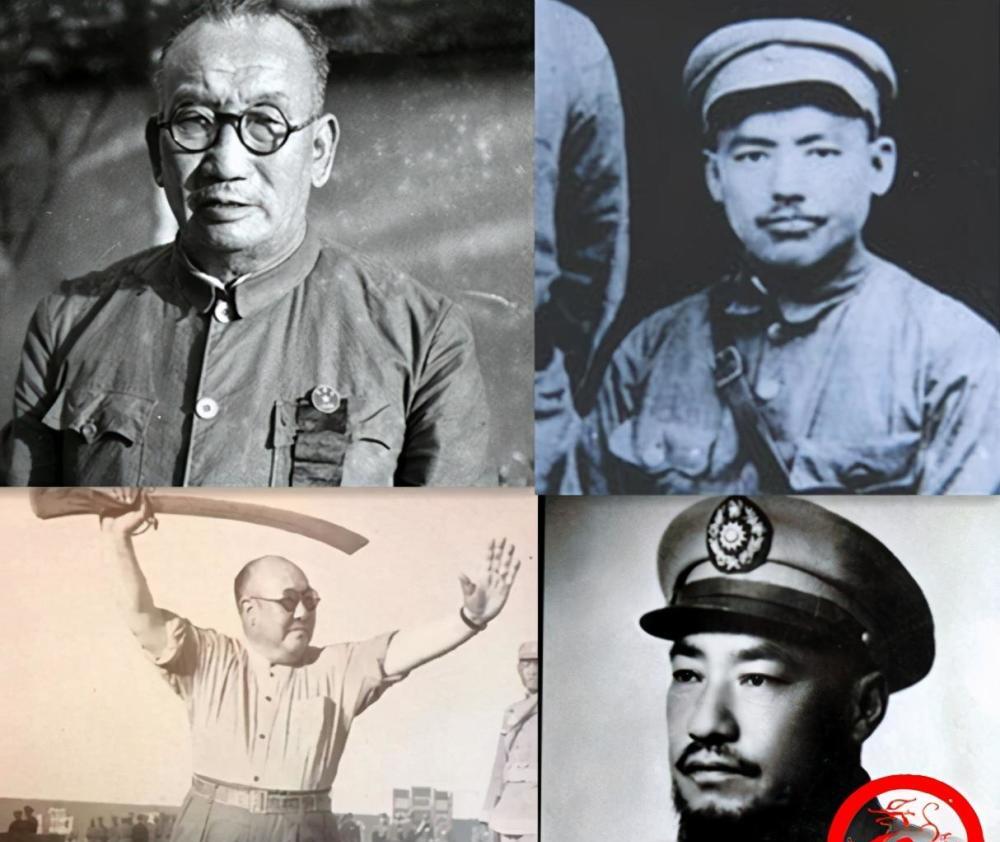
The "four horses in the northwest" are Ma Hongbin (upper left), Ma Buqing (upper right), Ma Hongkui (lower left), and Ma Bufang (lower right).
During the Republic of China period, the domestic situation was turbulent and warlords were in strife. Under these circumstances, the northwest region was divided by warlords in the northwest represented by Ma Bufang, Ma Hongkui, Ma Hongbin, and Ma Buqing, and the four of them were called the "Four Horses of the Northwest.". In addition, the "Four Horses of the Northwest" are divided into the Majiajun of Qinghai and the Majiajun of Ningxia, the former referring to the brothers Ma Buqing and Ma Bufang, while the latter refers to the troops led by the two brothers Ma Hongbin and Ma Hongkui.
On the eve of liberation, Ma Bufang, Ma Buqing, and Ma Hongkui, the "three horses," embarked on the road of escape with the Kuomintang, and eventually died in a foreign land. In the "Northwest Four Horses" there is a person and the other "three horses" are different, he lost his way during the Liberation War, chose the right road, made certain contributions to the Liberation War, and held important positions after the founding of the Country, and finally spent his old age in peace. He is Ma Hongbin, one of the "Four Horses of the Northwest".
Ma Hongbin.
On September 14, 1884, Ma Hongbin was born in a family in Hanjiaji, Linxia County, Gansu Province, whose father was the chief soldier of the Anning Camp pipe belt and the commander-in-chief of the Jianjian Army in the late Qing Dynasty. The biggest difference between Ma Hongbin and the other three horses is that he is a literate reader, while the others are rough people, which is also a factor in his jealousy of his brother Ma Hongkui. It is said that Ma Hongkui ran away from home in order to compete with his brother Ma Hongbin for favors, and Ma Hongkui used "my family's saint" to describe Ma Hongbin as an adult. Compared with others, Ma Hongbin is more mature, steady, sleek, and more humble. The young Ma Hongbin was a subordinate of his uncle Ma Fuxiang, and successively served as a horse team officer, a cavalry battalion commander, a new army pipe belt, and a new army commander. In 1916, at the age of 32, Ma Hongbin was awarded the rank of major general by the Beiyang government, and four years later he was promoted to lieutenant general.
Ma Hongbin (second from right) and General Yang Dezhi (first from left).
After Yan Feng's defeat of Chiang Kai-shek in 1930, Ma Hongbin was appointed division commander by Chiang Kai-shek, and later as commander of the Ganliangsu Border Defense. The following year, Ma Hongbin was appointed acting chairman and chairman of the Gansu Provincial Government. Soon after, Japan launched the "918 Incident", when Ma Hongbin was keenly aware that the ambitions of the Japanese were not only in the northeast or a certain region of China, but in the whole of China. Therefore, after the outbreak of the "918 Incident", Ma Hongbin began to study the operational characteristics and trends of the Japanese army, and always practiced the Ma family army.
After the Japanese army occupied the three northeastern provinces of our country, it also tried to join forces with the Soviet Union in order to control the various forces in China, and the Majia Army, as a warlord in the northwest at that time, naturally became the object of the Japanese army's co-optation. So the Japanese army sent Japanese spies and traitors who had been bribed by him to lobby Ma Hongbin, but he refused. After that, Ma Hongbin ordered the whole city to resist Japan, and if anyone violated the order, they should be executed as traitors.
In 1937, when the War of Resistance Against Japanese Aggression broke out in full swing, Ma Hongbin was ordered to lead his Eighty-first Army to Suixi to fight against the Japanese army. In 1940, the Japanese army crossed the Yellow River and attacked westward, and Ma Hongbin led his troops to resist the Japanese army. The Japanese army first bombarded our position with more than 30 cannons in an attempt to destroy our army's right wing position, while the Japanese infantry broke through the right wing and surrounded our army. At that time, Ma Hongbin's soldiers only had old-fashioned rifles, and they were obviously weak in the face of the sophisticated weapons of the Japanese army. In the end, Ma Hongbin immediately decided to retreat to the northeast with a large army, leaving a small number of fighters to insist on covering the forward position, and finally all of them died heroically.
Ma Hongbin in his later years.
In 1941, the Japanese army crossed the Yellow River to prepare for a sweep southward sweep, but was blocked by Ma Hongbin on the way. After two days and two nights of fierce fighting, the Japanese army was finally repelled by the Ma family army. Later, Ma Hongbin ordered Ma Jiajun to disguise himself as a commoner to destroy the Japanese railway southward, which successfully blocked the Japanese army's marching plan.
During the Liberation War, Ma Hongbin secretly released 18 captured PLA soldiers. In 1949, Ma Hongbin led his troops to declare an uprising, and under his inspiration, the Kuomintang 128th Army and other units chose to surrender. After the founding of New China, Ma Hongbin successively served as vice chairman of the Ningxia Provincial People's Government, director of the Ethnic Affairs Committee, deputy to the National People's Congress, and vice chairman of the People's Consultative Committee of all walks of life in Gansu Province. On October 30, 1960, Ma Hongbin died of illness at the age of 76.